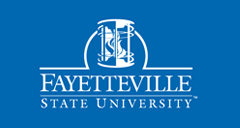Abstract
This paper outlines the conceptual framework of an inclusion initiative for programs serving secondary students from economically challenged communities. It proposes the use of distance learning technologies to afford these students access to learning resources, experiences, and environments in STEM. This paper addresses concerns with a complex duality of environmental factors: the environments in which these students are reared and currently reside; and the alteration to the environments in which they “traditionally” learning. It outlines a process where components participating in the online learning experiences contribute to the development of the motivational and learning strategies to overcome environmental conditions and achieve academic excellence.
Recommended Citation
Cobb, Robert Jr
(2020)
"Developing Self-Regulated Learning Behaviors in Online Learning Environments - A Conceptual Framework for Inclusion,"
Journal of Research Initiatives: Vol. 5:
Iss.
2, Article 5.
Available at:
https://digitalcommons.uncfsu.edu/jri/vol5/iss2/5
Included in
Educational Psychology Commons, Educational Technology Commons, Online and Distance Education Commons, Secondary Education Commons, Teacher Education and Professional Development Commons
